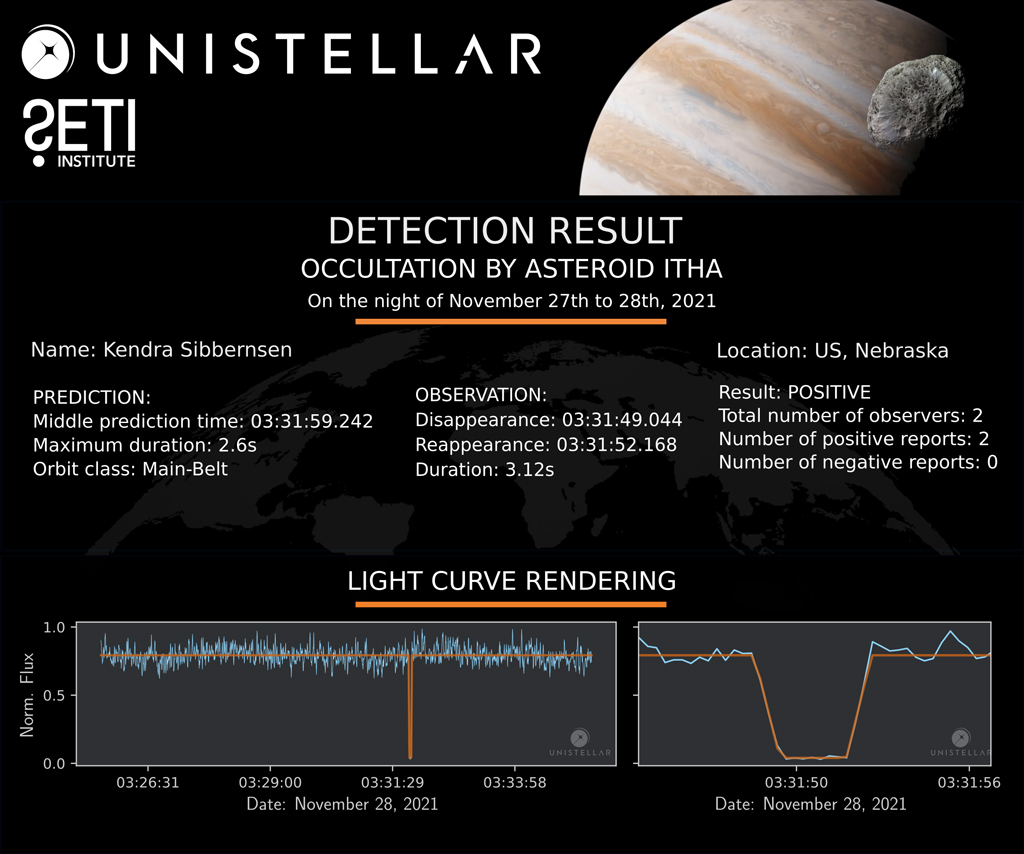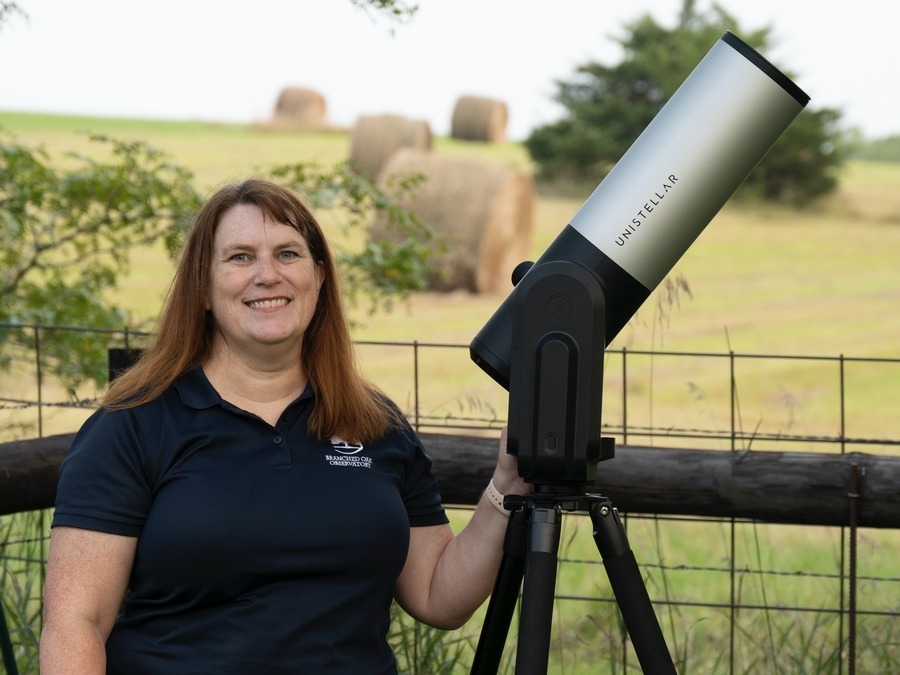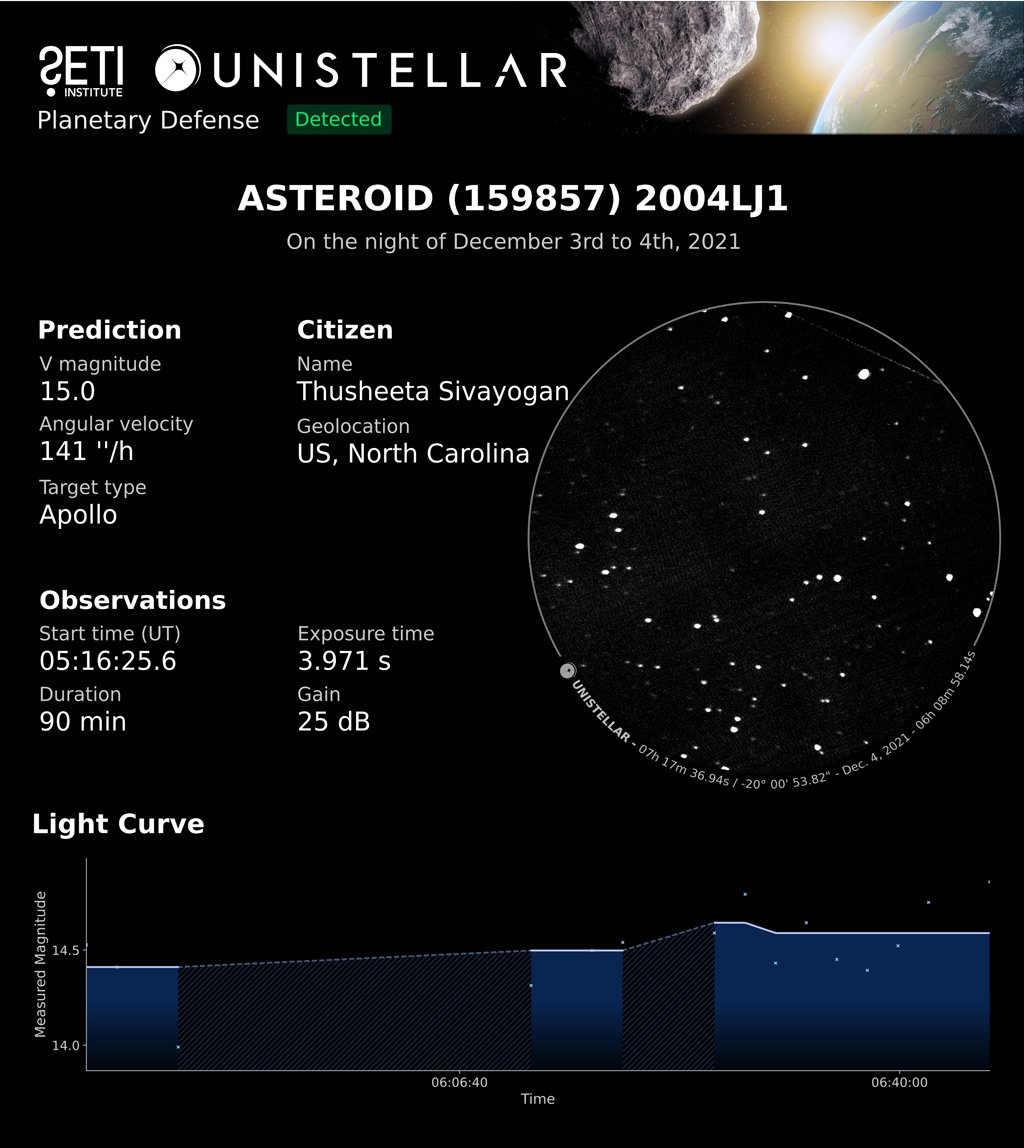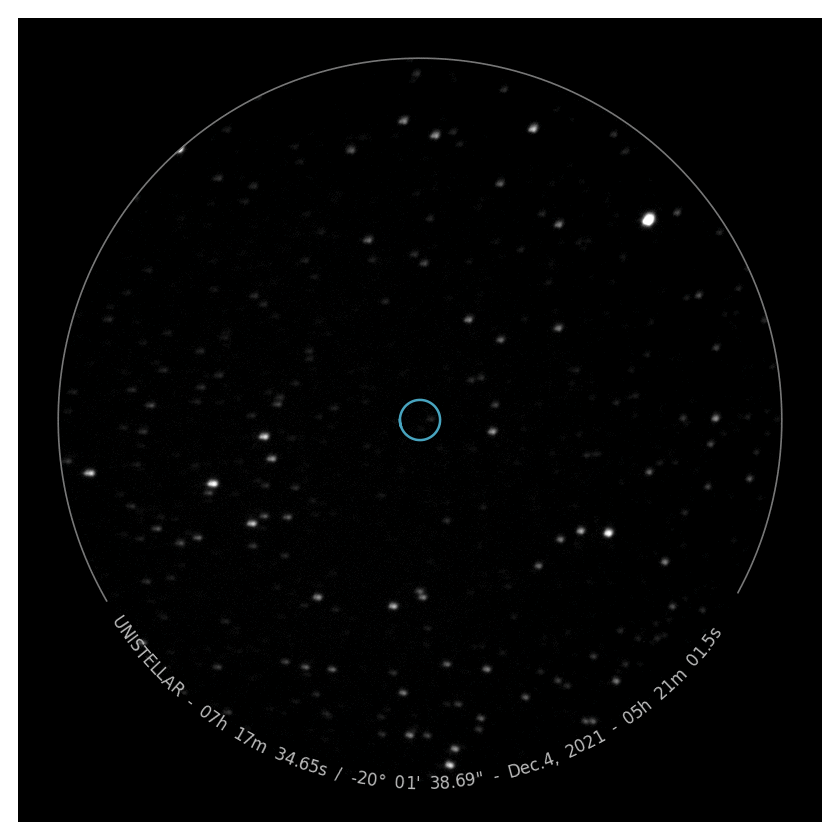
In August 2021, and thanks to a generous grant from the Gordon and Betty Moore Foundation, the SETI Institute donated Unistellar eVscopes to community college professors that teach astronomy. This new program, called the Unistellar College Astronomy Network (UCAN), has the goal of encouraging observational astronomy and inquiry-based science education experiences for teachers and students.
One year after the start of UCAN and thanks to the continued support from the Moore Foundation, we were able to renew the program for another year beginning in August 2022. We will continue working with the first cohort of 22 community colleges, but are also adding 10 new members. We are very excited to continue and improve upon the work we do with UCAN as we expand by working with community colleges in new regions of the country.
What We’re Doing
Our team of scientists and educators have been working with these professors to train them on the use of the eVscope, as well as how to conduct citizen science observations. These astronomy teachers and their students are using eVscopes for outreach and class observations and labs. They will also participate in the Unistellar citizen network for investigations of exoplanet transits, protecting Earth against asteroid impacts, and to help NASA to refine the shape of asteroids for their Lucy mission to trojan asteroids.
We have also developed education materials for these teachers and are helping them choose citizen science events to observe. We hope that working closely with these teachers we will also find ways where the eVscope can be implemented into their already used curriculum so that students can have a richer and more engaging learning experience.
We created this video specifically for the UCAN professors to show to their students so that they can learn about the SETI Institute, Unistellar, how the eVscope works, and the exciting citizen science opportunities that they can be involved in. Some motivated students may even be funded to present their eVscope investigations at a local, regional, or national science conference!
Education Activities Created by UCAN Professors
Community college professors in UCAN have been working on developing their own Unistellar eVscope activities for their astronomy classes. Below is a list of currently created activities by our network. UCAN participants: please be encouraged to contact UCAN administrators to have your education activity added too!
- Alamo Colleges/San Antonio College (San Antonio, TX) - UCAN Member, Astronomy Professor David Wood
Activity created by Prof. Wood: Pleiades-Moon eVscope Activity - DOWNLOAD [17KB]
More UCAN member created activities will be added soon! Check our Education Materials page for all of our eVscope activities (UCAN and SETI Institute created).
Scientific Results from UCAN

Education Highlights from UCAN
Using SETI Institute Created Unistellar Education Activities
Community College - Raleigh, NC)
I used the UCAN exoplanet lab in spring 2022. It is a wonderful lab, and it seemed the students enjoyed the lab. I made a few modifications and gave it as an online lab. I am planning to use the lab every semester.
The Nature and Working of Science

College - Omaha, NE)
I've been thinking about how best to share data from observations with my online students. When trying to convey the nature of science and how it works, I think it is as important to show the process and the negative detections as well as the positive ones. I have found that many of my students are so afraid of "failing" at science, but that is the point of science, trying to learn what does and doesn't work . . . I did a couple occultation observations . . . looks to me like there is no occultation . . . I am going to share [results] with my astronomy students and see if we can start a discussion about signal to noise ratio and what a positive detection looks like.
Unistellar eVscope Night Astronomy Labs
I'm running my first in-person night labs tonight and tomorrow in, well, years. The first one is usually learning to identify some constellations and stars with the naked eye. I'll be bringing along the eVscope for fun (and to introduce it to our invaluable lab tech) at the end of the session . . . It was a beautiful night. Students and lab manager were duly impressed with the eVscope. They enjoyed watching the Horsehead Nebula and the Triangulum Galaxy slowly appear seemingly out of the darkness.
First lab of the semester (Monday, February 7). Students gather around the eVscope after we used it to take our first images of M42, Betelgeuse, and Rigel. Their first task is to qualitatively contrast the color difference between the two stars and pose questions about what might be responsible for the color difference. Their second task is to compare the image of M42 taken with the eVscope to the image taken through an 8-inch Meade (25-mm eyepiece) 15 minutes later. They are asked to think about which appears brighter, which shows more fine detail, and why they might look different.


